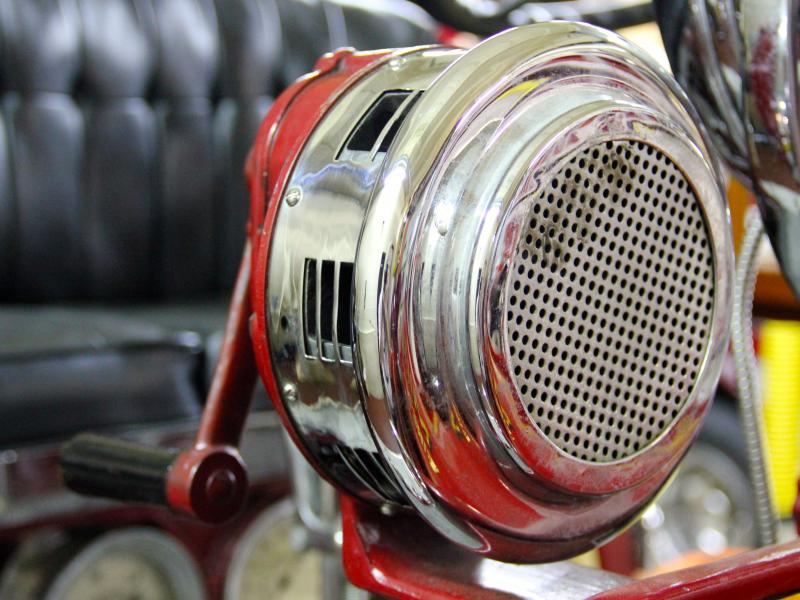Slow, wailing sirens can’t help but sound mournful
Water flowed out of the red plastic barrel, making its way through the white hose, exiting through a brass fitting, giving life to the roots of the holly tree on the hill in the cemetery. We lost three lindens a few years back on that hill overlooking the white front of Lloyd’s Market. Didn’t keep them watered. Paul replaced them with a holly, and I’m not about to lose this one.
I thought of a book about a graveyard called “A Fine and Private Place.” Dan recommended the book. Many years later, suffering from a number of maladies, he advised me: “Don’t get old, Dennis.”
Gravity’s pull on the siphoning hose, drawing the water quietly and effortlessly, harnessing the power of the universe, entered my thoughts. So too did the Transit of Venus historical marker at the bottom of the hill explaining a temporary scientific station here a few centuries back that contributed to the measurement of the size of our solar system. But it wasn’t the universe or the tombstones or the water that held my thoughts. It was the quiet.
Cars passed on Savannah Road on a summer evening in July. They’re quieter now than they ever have been. Engines muffled, many of them electric. They rolled past, silently. A few young people walked by the church but their voices were far too distant to hear. No slamming car doors. No helicopters circling and landing on top of the hospital. No children or soccer players shouting on the school grounds. All that I could hear were the songs of birds. The sun still had an hour and a half left for this day, but a palpable quiet had settled over the town on this Sunday.
A darker, customary quiet filled the town just after midnight early Tuesday morning, before wailing sirens rustled me out of a deep sleep. I’ve lived within a block of Savannah Road in Lewes - two blocks from the firehouse, two blocks from the hospital - for 35 years. The sounds of fire trucks racing out of town, ambulances racing into town, their sirens alerting drivers to get out of the way - those are familiar sounds. But the wailing sirens in the wee hours of Tuesday morning broke the quiet like nothing before. Several trucks rolled out Savannah Road with their sirens sounding and their lights flashing, but there was no hurry. That is what was different.
Lewes Fire Department Deputy Chief Craig Reynolds told me later that 10 or so equipment manned by about 20 volunteers formed what is known as a fallen firefighter’s escort to follow an ambulance carrying the body of Tim McClanahan from Beebe Healthcare to the medical examiner’s office on the grounds of the Stockley Center near Georgetown. Tim died a few hours earlier following a fall from a helicopter during a training exercise at the airport in Georgetown.
“We drove slowly,” said Craig. “Not so slowly as to hold up traffic too much, but enough to be respectful.” Absent was the urgent passing sound of trucks and ambulances speeding to save lives and property. Instead, in this case, they became the first funeral procession, but certainly not the last, for Tim.
They also served as an alert to the community - all along the way from Lewes to Stockley in the middle of the night - that something very sad had happened, something that affects us all, something that we all must share.
The sounds in our communities say much about what is going on around us. They’re part of our shared experiences. Poet John Donne once wrote, and Ernest Hemingway used part of it to title a novel: “No man is an island, entire of itself; every man is a piece of the continent, a part of the main. If a clod be washed away by the sea, Europe is the less, as well as if a promontory were . . . . : any man’s death diminishes me, because I am involved in mankind, and therefore never send to know for whom the bell tolls; it tolls for thee.”

























































